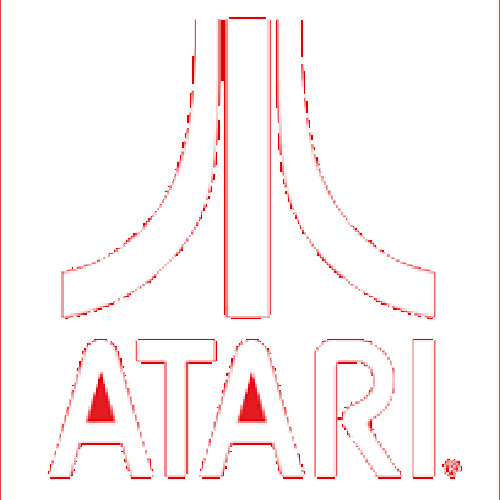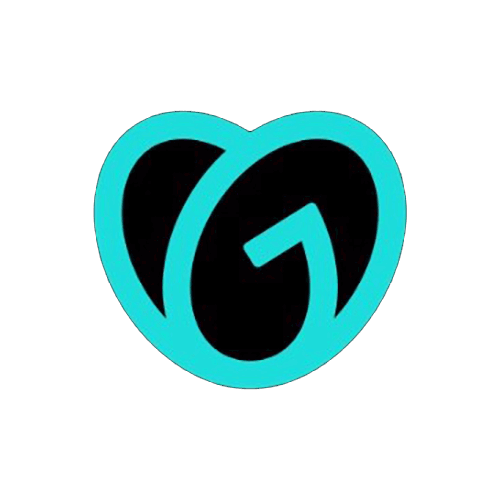Blockchain-Based Internet Domains Are the "LinkedIn of Web3" Says Unstoppable COO Sandy Carter
From the NFT.NYC 2024 conference, BlockchainJournal.com editor-in-chief David Berlind checks in with Unstoppable Domains COO Sandy Carter to learn about the unique value proposition of Web3 domains over the plain old internet domains that most Web users and internet destinations are familiar with. Unstoppable Domains is both an internet registry and an internet registrar. According to Carter, perhaps the biggest and most noticeable change from legacy domains to Web3 domains is that legacy domains are essentially for rent. They must be renewed by the registrant on a periodic basis. Meanwhile, Web3 domains are owned. But, according to Carter, there are additional advantages to Web3 domains over their legacy counterparts
Another major challenge associated with legacy domains acquired through legacy registrars is how the internet domain itself (i.e., abc.com) cannot verifiably represent anything about the individual or organization that owns the domain. For example, whereas a Web3 domain can behave as a digital proxy for an entity's identity, credentials, education, personal or organizational profiles, and other information that might be useful to the automation of certain business processes, legacy domains have no such inherent capability.
Referring to how today's social networks are often the repositories of this personal and organizational information, Carter refers to this capability to associate that data directly with an internet domain the "LinkedIn for Web3." However, whereas most entity-specific data that are kept with a social network is discoverable based on a user's global security settings (ie, "friends only"), the different types of identifiable information associated with a Web3 domain can be individually and optionally shared in an infinite number of specific (and non-global) contexts.
(The full-text transcript appears below.)
Published:April 17, 2024

8 min read
Audio-Only Podcast
Full-text transcript of David Berlind's Interview with Sandy Carter, COO of Unstoppable Domains
David Berlind: Today is April 5th, 2024. I'm David Berlind with the Blockchain Journal podcast, and I'm coming to you from NFT.NYC. A conference taking place on the West side of Manhattan and Jacob Javits Center [is] all about NFTs, non-fungible tokens, and blockchain. And, sitting with me is one of the OG's of tech, Sandy Carter. Just so you know, I've interviewed Sandy Carter many times over my more than 30 years in tech journalism... Yeah, let's not date ourselves. Sandy, it's great to interview you one more time.
Sandy Carter: So, it's so great to be here in the heart of New York City, at NFT.NYC. And thank you, David. David is really the OG. He's been like, reporting all the great stuff for so many years and bringing it to you live and direct.
Berlind: Thank you so much. So, over the years, you have held many different positions at many different companies. I think I first met you when you were at IBM and the "Queen of WebSphere." WebSphere was the talk of just about all tech back then because Java was such a big deal. What are you doing now?
Carter: So now, I am the COO of Unstoppable Domains. What we do is we have a digital identity platform for Web3. And what that means is [that] we store all the information about you digitally, is stored on-chain or on the blockchain, and then you own that data, and you own your digital identity. So unlike Web2 , where someone can take it from you, as we've seen many times in the past, here, you own your data. You own your digital identity. So it's yours for life, which gives you a lot of power. It enables you to share what you want, to monetize what you want, but also to take advantage of the new trend of "tokenization is everything," where you could store real estate or your sustainability of your clothing to your favorite causes as well.
Berlind: Let's talk about this whole idea of domains. Because the domain name service has been around for decades, lots of people have purchased domains and kept them for a long time - personal domains [and] business domains. So, how are the domains that Unstoppable helps people manage, acquire, et cetera? How are those different from the traditional domains?
Carter: So, there's a couple of things. We call them domains with superpowers. So, for a Web3 domain you actually own it. So, [with] Web2, you rent it because you're subscribing to it. If you think about in Web3, you also now can store information about yourself. You can transact with it.
Berlind: I couldn't do that before? I couldn't store information about myself on my domain?
Carter: No, because your domain was really your website, so you can store information up on your website, like sandy.com. But if I wanted to store information about, for example: causes, education, any of that information... Tickets for things that I had been to, my driver's license. I could not store that in a .com. Now that you have a Web3 domain, that's actually storing information on the blockchain. So, think about it. Think about that domain as almost like a super NFT where information is stored inside of it.
Berlind: OK, I'm starting to get a picture. Being the owner of several domains, there's a limited amount of metadata that I can associate with that domain. So, it sounds like to me what you're saying is, is that because it's on-chain, you actually get to associate a whole bunch of other data that you could never associate with the domain before other than being able to put it on your website, like on your.com. That's a little bit different than actually having it tied directly to the domain. So, in some ways, would you say that the domain becomes a proxy for someone's identity?
Carter: That's exactly what it is. So, the domain is your digital identity. And that's what we that's why we have a digital identity platform. It's to store all that information and help you to manage it and keep it secure. We talk about it being discoverable. If you want to, because it's your data, we talk about it being social because you can use it to join communities and then talk in an encrypted fashion. And we talk about it being social because the first thing people do is when they see like a Web3 domain profile, as they say, this looks like LinkedIn for Web3 and that's exactly what we want them to look at.
Berlind: So, how is this different from... Like if I just had a wallet, and I had some NFTs in my wallet, that kind of held that same metadata that you're talking about.
Carter: So, if you have a wallet, you can look at the data that sits inside of that wallet. But what the digital identity enables you to do is to look across multiple wallets. It also enables you to use that digital identity, like, for example, as people as signing into, let's say, Atari, a game, or a metaverse, or a DeFi application, and then you take with you some of that data. It also gives you the ability to do a reputation score, like, what's the score of all my wallets? Are they safe for you to interact with, or are they not safe for you to interact with? So, all of that information really comes together in that particular digital identity.
Berlind: And it's on-chain, as you point out. So, it's in a very sort of public transparent environment as opposed to wallets, where the wallet's... It's my wallet, maybe I let some people see it or I let some people know "Hey, that wallet address is associated with David Berlind." But you don't really know that when it's in a wallet as opposed to on a domain where you can make those associations.
I want to talk a little bit about a trend that's happening, I think, in the blockchain industry, which is [that] when things first got started, it was all about anonymity. Everybody wants to be anonymous. But, really, in a B2B context , or even a B2C context, I think most entities, people, [and] organizations, they want to know who they're doing business with. Anonymity is not good because that is the slippery slope into a scam, or getting rugged, or having something really bad happen. So, is this an important aspect of driving identity so that people know who they're doing business with?
Carter: So, it is an option, again, because you own your digital identity, and you own your data. We like to give choices. We do have a humanity check, which is a KYC, the ability to know that you are the person that you're talking about. We're finding more and more companies are requiring that. So, if a company requires that for business and you choose not to do it, then you don't do business with that company. But we do have that as an option, and it's really fascinating given [that] we have so many Web2 companies leveraging the tech because of the value it brings. This is becoming more and more increasingly important. So, you nailed it for sure.
Berlind: Recently, there's [been] some news. I was talking... Maybe you're a registrar? Is that true?
Carter: Yeah, we're a registry and a registrar.
Berlind: OK, So I ask a question about another registrar. GoDaddy announced that they are basically marrying the Ethereum name service (ENS) with the DNS - the domain name service. This is in my mind, [is] one way to forge the connection between an identity in a very - kind of a - trustworthy way. If ibm.com, your former employer... If ibm.com... They own their domain, and if they tie it to their Ethereum name server, whatever their domain name is on the Ethereum name service, then I know if those two things are joined up, I can probably trust that the domain that claims to be IBM on the ENS is actually IBM. So is that an important development in sort of the arc of identity management, blockchain, and Web3?
Carter: So, I would say yes, and we're doing the same thing at Unstoppable. So, we can tokenize a .com. What does that mean? So, if I have... Let's go back to ibm.com. I can tokenize that and put it on-chain as well. And that's powerful because now that Web2 domain, ibm.com - now possesses the power of the Web2 domain, the ability to be searchable, and have that website with the power of Web3, which is blockchain-based as well. So now you bring both together. I think that's really cool.
And then, just yesterday, we announced with the Brand Safety Alliance, which is part of the GoDaddy registry, that we would be part of their brand protection service. It's called global blocking and that's also critical because what that means is as brands, Web2 brands come in and they say, "Look, I want to protect every domain name." There are 1,500 Web2 domain names. "I want to protect all of those for my company." Let's say it's Forbes, for example, who's right here. Now, they not only protect forbes.ai, forbes.com, forbes.edu, but also all of the domains or digital identities for our Web3 domains: crypto.com, .POG that we just announced, .Austin, that we just announced. So, they're protecting all of those too. So, in essence, they're future-proofing their business by including all of those in there as well.
Berlind: OK, where can people find Unstoppable?
Carter Unstoppable – so, if you're looking on crypto Twitter, it's @unstoppableweb, not @unstoppabledomain, it's @unstoppableweb. If you're looking for the website, it's unstoppabledomains.com, and then, my name is Sandy Carter. You can find me on every channel out there, too.
Berlind: Yeah, and to that point, what we're going to do is, right as this video is ending, I'm going to throw up. QR codes: those QR codes are where you can connect with Blockchain Journal; you can connect with me, but you'll also be able to connect with Sandy very easily just by scanning the codes.
Sandy Carter, CEO of Unstoppable Domains, thank you very much for joining me on the Blockchain Journal podcast.
Carter: Thank you, David. Such a pleasure.
Berlind: Yeah, it's been great to have Sandy. Thanks very much for joining us, and we'll see you at the next video.














